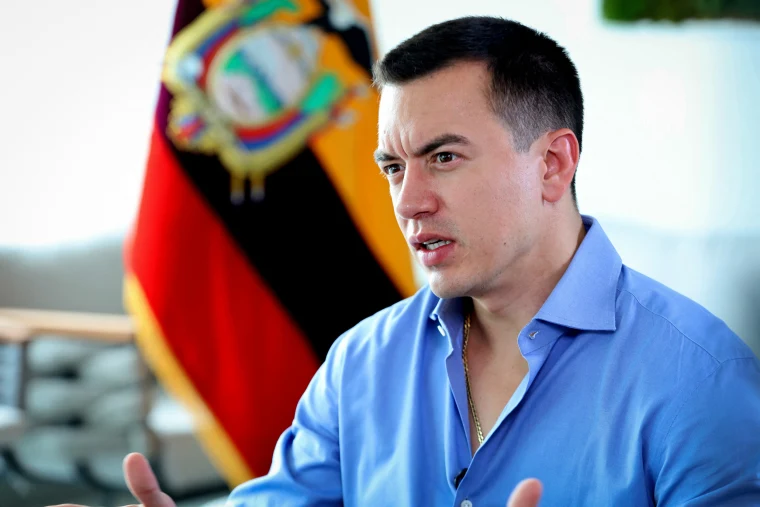QUITO, (Reuters) – Ecuador’s President Daniel Noboa has won significant voter support for a raft of security measures he says will help him fight sharply increased crime, a quick vote tally by the national electoral council showed on Sunday.
The successful measures – including joint police-military patrols, the extradition of wanted criminals and longer sentences for terrorism and murder, among other crimes – are intended to battle spiking violence that has made international headlines.
Even as voting was taking place, authorities reported the death of a prison director in the country’s western Manabi province and a possible riot attempt at a prison in Los Rios province. The SNAI prisons agency provided no details about the death of director Cosme Damian Parrales, but said it was investigating.
“We have defended the country, now we have more tools to fight against crime and return peace to Ecuadorean families,” Noboa posted on his Instagram account, alongside photos of himself with his wife and two of his children.
The quick count by the electoral council showed between 60% and 73% backing for the security-focused measures, including tougher gun controls in areas close to prisons, no parole for crimes like kidnapping or terrorism financing, among others, and the military being able to use confiscated weapons.
Cocaine-smuggling gangs have expanded into every corner of Latin America over the last decade, turning once-tranquil nations like Ecuador into new battlegrounds, security officials and diplomats say.
In January, violence in Ecuador captured world attention when gunmen stormed a live television broadcast and scores of prison staff were taken hostage.
Polling had suggested voters would likely support the measures put forward by Noboa, 36, in the 11-question referendum.
A measure which would allow workers to be contracted by the hour, which opponents say will benefit the rich and international companies, and another recognizing international arbitrage were rejected by voters, with more than 60% saying no.
Some pollsters had warned that Noboa’s recent implementation of daily hours-long power cuts could dampen his support, after dry weather hit the country’s largely hydropower-based supplies, but the cuts seemed to have had little effect on voter backing.
Ecuador’s CNE electoral council said voting had been peaceful, and though the installation of some polling places had been hampered by strong rains, the problems had been largely overcome.






